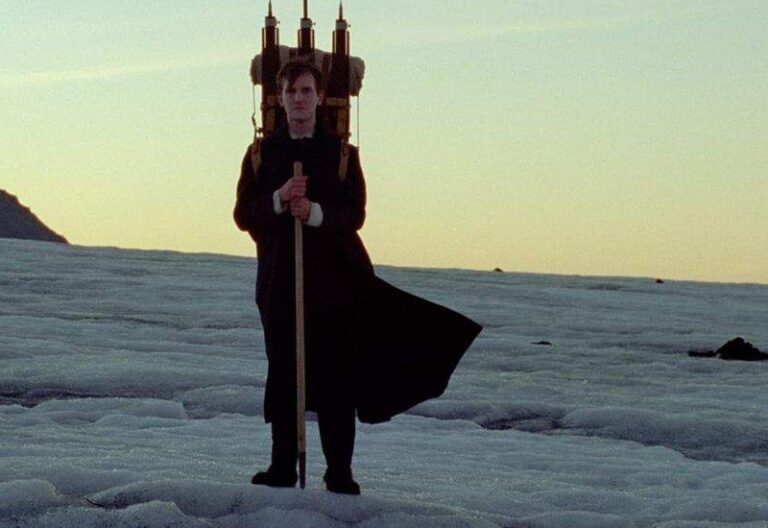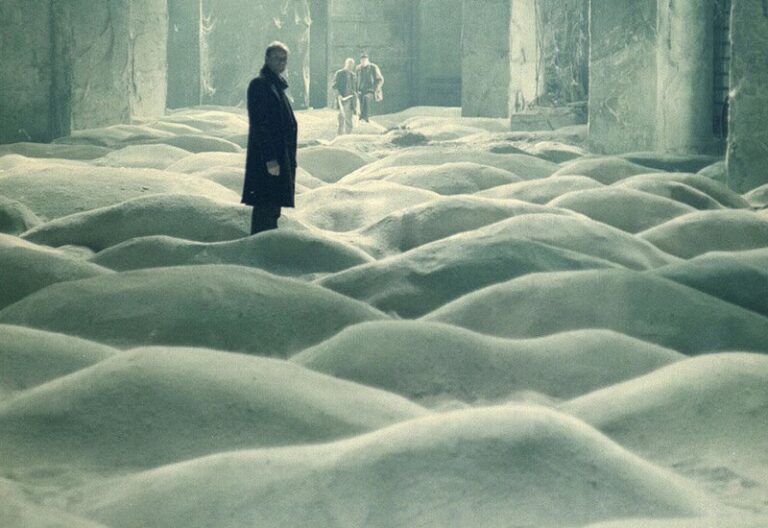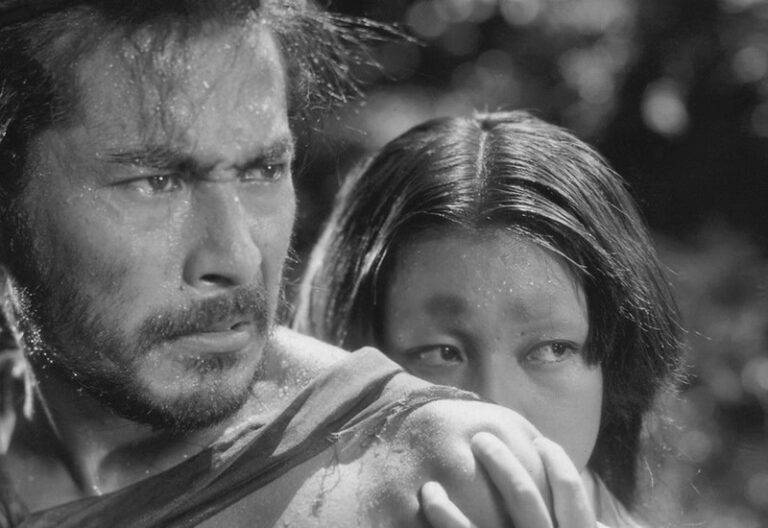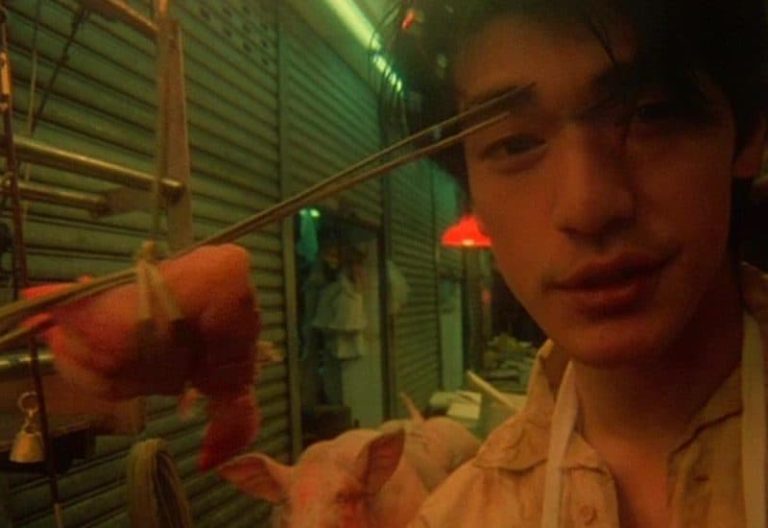the monk and the gun review
film by Pawo Choyning Dorji (2023)
In 2006, as Bhutan prepares for its first-ever democratic elections and democratic transfer after the king’s abdication, an aging Lama asks his young monk student to produce two firearms so that he can set things right.
Review by: Aaron Jones | Filed Under: Film Reviews
September 24, 2024
Becoming the youngest democracy on the planet and the last remaining nation to connect to the internet reveals a fascinating look at this rural landscape that has accumulated minimal influence from the modern world, posing many philosophical questions on whether the impact of a society entrenched in traditionalism can be improved by modernism and the drastic changes that democracy and Western ideologies so often carry with them.
This question, larger than the individual, shows graceful humor and care in the juxtaposition of a collective society being asked to participate in that of an individualist one. It impresses upon us a sense of innocence that can be lost through instilling traits they do not embrace, such as competitiveness and ego to pursue personal gain, and our dependence on technology, corporate culture, and the superficial glitter of the material world that commonly encourages taking more than we need.
When we see these new influences placed in this setting, it instills an awkward and intrusive forcefulness that communicates that those who offer progress often do not see ways in which others can benefit without it, suggesting only those on the receiving end of these new concepts have something to learn. As the film later demonstrates, it is we who come as teachers who have much to learn from those we see outside the influence of progress.

Much like the American Frank Coleman, who is there in search of antique guns, who represents American capitalism and who, ironically, looks surprisingly like Mark Zuckerberg and carries with him many of the negative traits of individualism and capitalism. I also came to discover from another review that his name is an homage to a character in a 1937 film called “Lost Horizon,” in which his plane crashes in the Himalayas, leading him to discover Shangri-La and offering a subliminal connection to previous representations of the Himalayas and the influences posed by the outside world, in this case, WWII.
The Monk and the Gun is a cautionary tale that suggests the threat of allegiances and divisiveness sewn into a culture that has largely avoided them. As the West suggests these gifts we have brought to them are worth fighting for, the film itself seems to counter that by asking: if it causes people to fight, what value is it to them? Can freedom be sold to those who feel they have more freedoms and independence than those trying to sell them their version of freedom? Is freedom just as much embodied in the physical as it is in the psychological, and are the sacrifices in quality of life and peace of mind outweighed by the gains previously unattainable to them?

Author
Reviewed by Aaron Jones. Based in California, he developed a passion for film from a young age and has since viewed over 10,000 films. His appreciation for the medium led him to film criticism, where he now writes for CinemaWaves, offering analysis of both contemporary releases and timeless classics. In addition to his work here, he has contributed to other publications as well. Feel free to follow him on Instagram and Letterboxd.
With the strange disappearance of Laura, two colleagues, her older boyfriend, Rafael, and Ezequiel, learn of their recent discoveries, which may help…
When her young son Minato starts to behave strangely, his mother feels that there is something wrong. Discovering that a teacher is responsible, she storms…
Middle-aged Giulietta grows suspicious of her husband, Giorgio, when his behavior grows increasingly questionable. One night when Giorgio initiates a seance amongst…
The development of slow, or contemplative cinema is rooted in the history of film itself. Understanding slow cinema involves examining its evolution from early influences to its…
The Rashomon Effect refers to a phenomenon where different people provide contradictory interpretations of the same event. The term originated from Akira Kurosawa’s…
Emerging in the late 20th century, a film movement known as the Hong Kong New Wave, originating from the bustling neon streets of Hong Kong, while captivating global…






